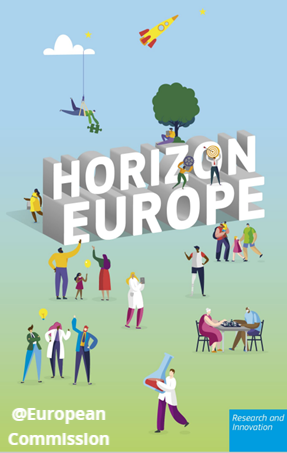
On 20 March 2024, the European Commission adopted Horizon Europe’s 2025-2027 strategic plan during the Research and Innovation Week, following an in-depth analysis of the 2021-2024 period, as well as a large public consultation of stakeholders, ensuring a co-design approach. The plan outlines the research programme’s main strategic orientations for the next three years, namely accomplishing the green and digital transitions, and building a more resilient, competitive, inclusive, and democratic Europe. Compared to the 2021-2024 plan, it provides new insights on how to reinforce synergies with national research and innovation (R&I) activities and other funding instruments.
On the green transition, the document underscores that 35% of Horizon’s total budget should be allocated to climate-related topics, highlighting the role of the programme in increasing EU strategic autonomy in the area and the importance of building resilience to climate threats. For the 2025-2027 period, the strategic plan introduces a new target, with 10% of resources to be dedicated to biodiversity action. It also announces the launch of nine new European co-funded and co-programmed partnerships on a variety of issues, including Innovative Materials for EU, Raw Materials for the Green and Digital Transition, and Solar Photovoltaics.
The strategic plan presents the thirty-two expected impacts of Horizon Europe R&I activities. Cluster 5, on Climate, Energy, and Mobility, cites amongst the main objectives advancing science, facilitating the clean energy transition through cross-cutting solutions, ensuring a secure and competitive renewable and decarbonised energy supply, and improving energy efficiency. Furthermore, the European Commission places a strong focus on cross-cutting issues, such as the interconnectedness between the green and digital transitions, as well as building European competitiveness and resilience. Similarly, the publication emphasises the need to build synergies between initiatives, particularly with the European Research Area (ERA) and the New European Innovation Agenda (NEIA).
In that regard, the strategic plan aims to tackle several broad challenges, highlighting the necessity to enhance the inclusion of social science and humanities (SSH) and to better balance R&I across all ranges of maturity and technology readiness levels (TRLs). A strong emphasis is put on social innovation and inclusivity from the local to the global level. For instance, the New European Bauhaus is considered a transversal initiative, looking at circularity, architecture, sustainability, and local democracy, and will be implemented as a cross-cluster activity for 2025-2027.
Additionally, the report takes stock of the implementation of the five existing EU Missions and discusses how to further deploy them to maximise impact, notably through strengthened and better-coordinated administrative governance, a broader portfolio of instruments such as public-private partnerships and public procurement, and more diverse sources of funding and financing. Lastly, it places emphasis on Horizon Europe’s approach to international cooperation, highlighting the importance of openness while ensuring research security.